I am the first to admit that I love free food. It's one of the chief reasons that I garden - I can make a salad with no exchange of money. What's even better than paying for garden seeds is getting these for free too. Most of us toss viable plant starts into the trash or compost bin regularly.
Alex captured me rescuing a pineapple top from my parent's trash. Settle a pineapple in a container filled with soil and it will sprout roots and continue to grow. I have kept pineapples as house plants for years and have yet to coax one to fruit, but others report it is possible.
Ever found a garlic clove that is sprouted? Chefs reject these because the garlic itself can be bitter. Pop that sprouted garlic in soil (indoors or out) and the greens will grow. Viola! Garlic chives!
Whereas most fruit pits do nothing in the soil, an avocado pit will sprout a thick stem and long green leaves in a container. The plant will not fruit without a graft of a producing tree, but an avocado makes a great house plant.
My latest experiment in compost gardening is celery. I planted the base of a store-bought celery stalk approximately 2 inches under the soil in one of our outdoor raised beds. Guess what started peaking through this week? Celery leaves! Even if the plant doesn't produce thick stalks, I know the leaves will be tasty in soup or salad.
Obviously, traditional garden plants that produce well will be grown from quality seeds. But if you have a little extra soil, it can't hurt to grow some unusual plants for free from your food waste!
I am this month's Once A Month Mom Get Real guest blogger and my first post - Edible Gardening Basics - is up. I hope you will read and follow the discussion!

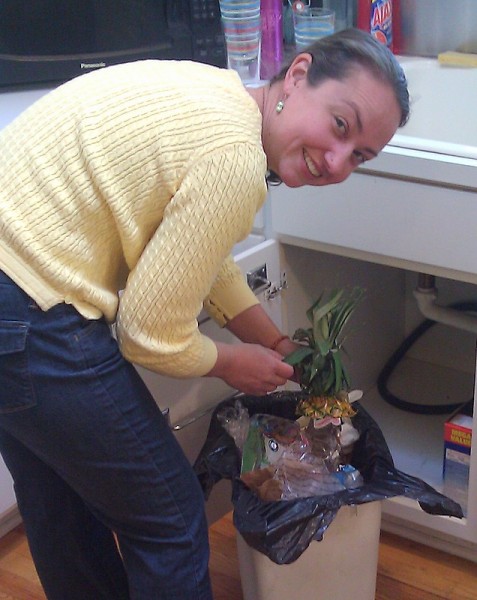
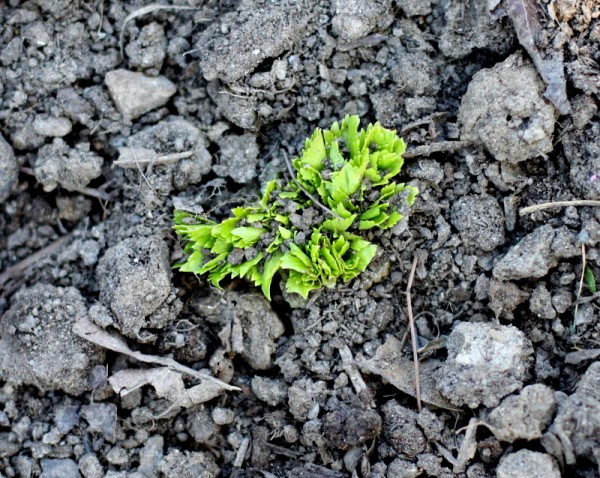
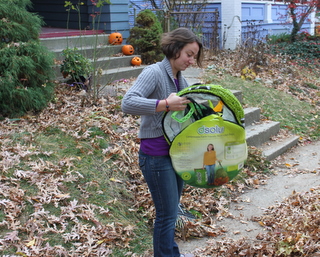
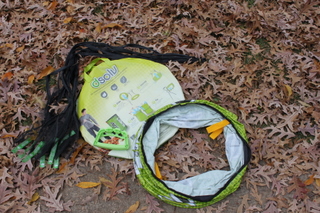

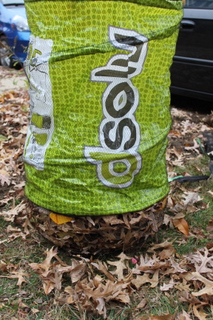

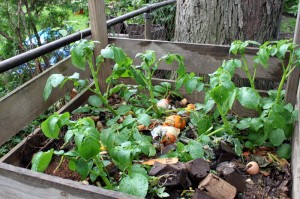
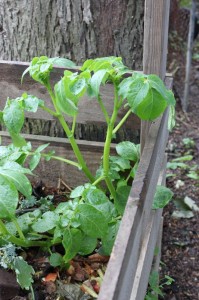
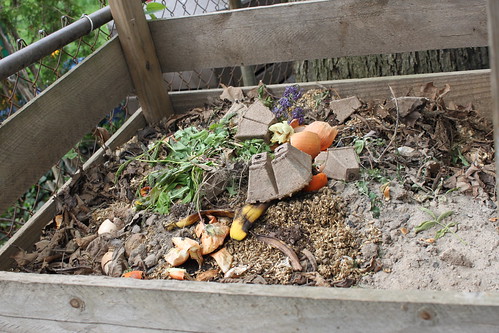 A
A 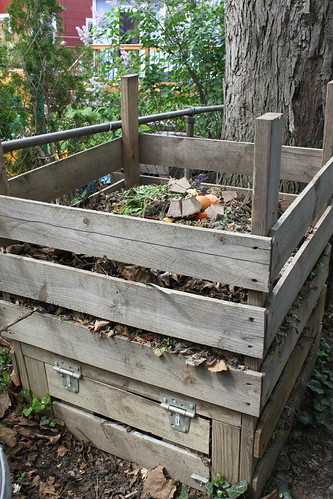 Here's how we do it:
Here's how we do it:
